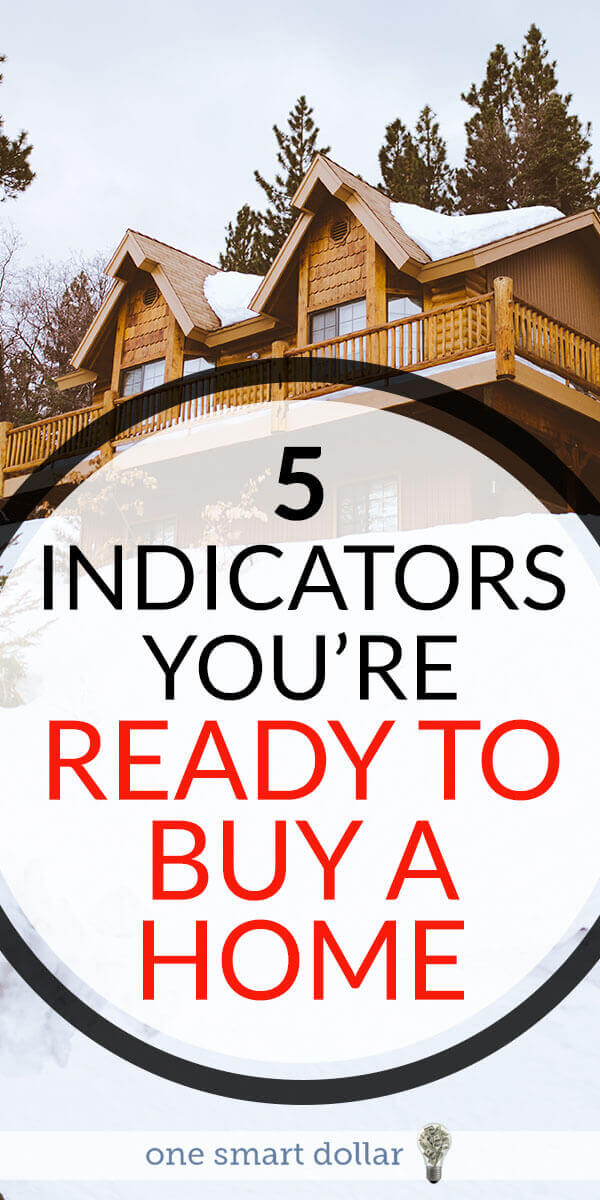
Buying a home is one of the biggest single purchases you’ll ever make. That means it’s important to feel confident that you’re ready. In addition to doing research on paint colors, light fixtures, and landscaping, you’ll need to make sure you’ve got the right financial pieces in place.
You might be closer than you think to be ready to buy a home! Here’s how to know you’re ready to make the financial commitment and start looking for a realtor.
You’ve gotten comfortable with a budget
If you’re late on your rent, your landlord may cut you some slack. But if you’re late on a mortgage, the bank probably won’t be as understanding. Following a budget is the first indicator that you’re ready to take on a home purchase and all the responsibilities that come along with it.
Start with a budgeting tool like Mint or Personal Capital to do a quick analysis of your budget. If you’re on track with your monthly expenses and can adjust your budget for things like a mortgage, taxes, insurance, and maintenance, then you should be feeling pretty good.
Your credit score is solid
You don’t have to have a perfect credit score to buy a home. But if your score is below average, you might want to wait to buy a home until it’s higher. That’s because most lenders will charge you a higher interest rate if your score is too low.
Don’t know what your credit score is? Take a look — I recommend Credit Sesame because it’s free and intuitive. You should never pay a fee to monitor your credit score. If you find that your credit score could use improvement, try some of these strategies before you start scouring the For Sale listings.
Your Income is Reliable
Now before you jump to conclusions, I’m not saying you have to promise to stay at the same job for the next 30 years. But your income stability is one of the factors that lenders look at when determining the interest rate on your mortgage.
The more stable your income, the better you’ll look to a bank. If you’re planning to make big career changes in the next two to three years, like going to grad school or moving to a different city, then buying a house should wait. It’s much easier to break a lease than to sell a house!
You’re steadily saving
It may seem counterintuitive, but buying a home should never be your first financial priority. To set yourself up for long-term success, it’s much more important to be saving and investing for retirement. That’s because the sooner you start saving and investing for retirement, the more time you’ll have to take advantage of the power of compounding interest and returns.
Plus, you’ll want to have some kind of emergency fund in place to cover any unexpected expenses associated with your new home. Even if you already have an employer retirement account, you should be saving and investing on your own as well. I recommend Betterment or Stash for anyone who wants to start investing outside of their 401(k).
You’ve done your research
This is probably the most important indicator that you’re ready to buy a home. Just because your finances are in good shape doesn’t mean you can jump right into house showings. Be prepared by researching your options.
Start with a tool like Lending Tree, which has handy mortgage calculators and will help you compare rates. Don’t forget to check out non-traditional lenders like SoFi as well. Checking out all your options will help you get a great rate and feel confident as you go into searching for the right home for you.
Not ready yet? That’s OK! Some strategies to help get you closer to homeownership include:
- Pay down your debt. Transfer your balance to a 0% APR credit card and focus on paying it off as quickly as possible. Spending more money than you make is one of the most common habits that hold people back from being homeowners.
- Build up your savings. If you’re living from paycheck to paycheck, saving enough money for a down payment is going to be challenging. Start adopting some of our frugal living tips. And consider making more money by starting a second job or side hustle.
- Refinance your student loans. If your student loans are causing too much of a financial burden, consider refinancing to get a lower interest rate or more flexible payment terms. Most loans can be refinanced, saving you hundreds or even thousands of dollars over the long-term.

